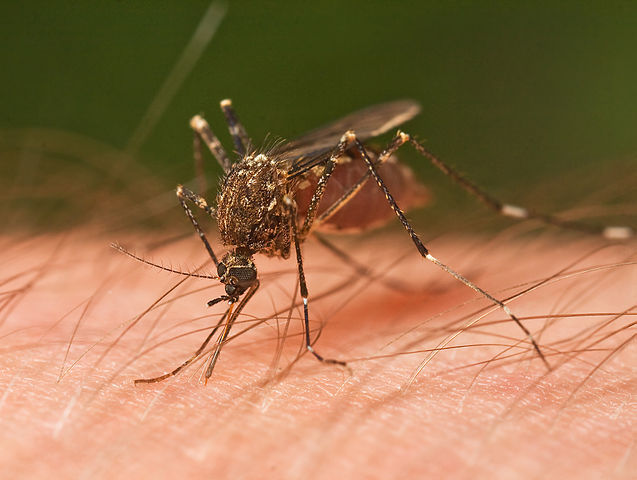ROSS – Ross County Health District has reported a positive case of West Nile in local Mosquitos.
The department announced Tuesday that the first group of mosquitoes to test positive in Ross county has been confirmed by Ohio Department of Health. No human cases have been reported this season.
The presence of WNV was confirmed today by the Oho Department of Health Laboratory in a mosquito sample collected this month. No human or animal cases of WNV or Eastern Equine Encephalitis (EEE) have been detected so far this year. There is no elevated risk level or the risk-level change associated with this finding.
Last year both Pickaway County and Ross County have tested positive for the west Nile virus. Ross and Pickaway County Public Health mosquito control program uses an integrated mosquito management (IMM) approach to control mosquitoes. IMM uses a combination of methods to prevent and control mosquitoes that spread viruses, like West Nile
A bite of a mosquito carrying West Nile Virus can cause fever, aches, joint pain, diarrhea, vomiting, and rash; however, most – 8 out of IO people – will not develop any symptoms.
Serious illness associated with West Nile Virus is rare, but can include central nervous system disorders including encephalitis and/or meningitis. There is no vaccine or antiviral treatment r West Nile Virus, so the most effective way to avoid in action is to prevent the mosquito bite. Use mosquito repellent as directed on the package. Avoid outdoor activities from dusk to dawn when mosquitoes are most active. Wear long sleeves, long pants, and tuck clothing in. Reducemosquitobreedingsitesaroundyour home by removing sources of standing water, such as ower pots, buckets, and barrels. Tum wading pools on their side when not in use. Change water in birdbaths and pet dishes frequently. The Ross County Health District (RCHD) has the ability to treat stagnant water to prevent mosquitoes from reproducing. Concerned individuals can contact the RCHD at 740-775-1158 to schedule an on-site consultation.










